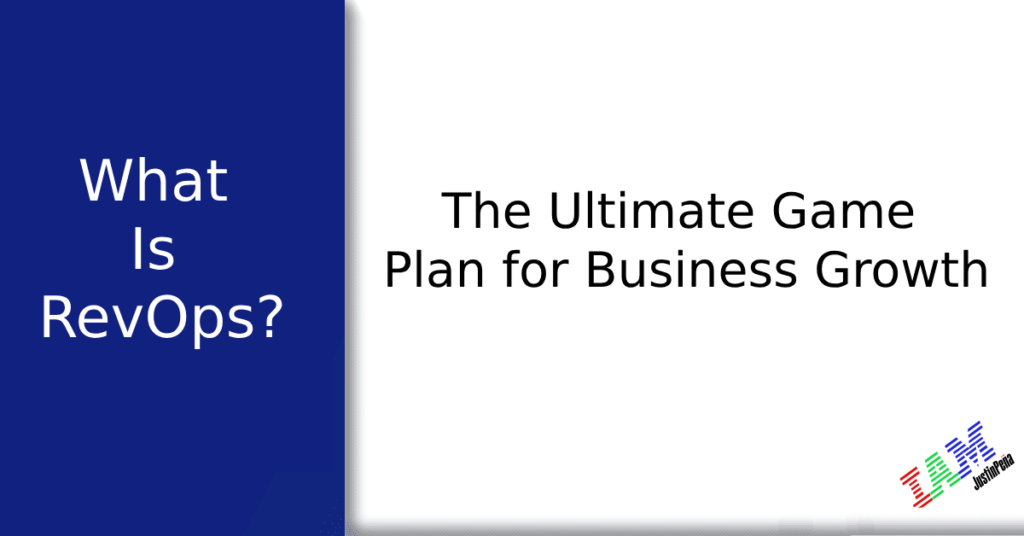
In the pursuit of robust business growth, RevOps (short for Revenue Operations) emerges as a winning game plan, harmonizing all key business components to maximize revenue.
So, what exactly is RevOps in 2023, and why is it such a buzzword among thriving businesses? Strap in as we delve deeper into this phenomenon.
What is RevOps?
Imagine marketing, sales, and service departments shedding their solo missions to form one super-team! The team’s shared goal? Finding inventive ways to multiply income. This collaborative effort describes RevOps – not focused on routine tasks like hiring or budgeting but instead dedicated to revenue growth.
RevOps views income generation as an interplay of marketing, sales, and service teams rather than solely hinging on great products or services. It’s a roadmap, ensuring all revenue-generating operations harmonize for a stellar customer experience.
What is the Significance of RevOps?
Every business leader can attest to the grueling task of making different departments dance to the same rhythm. This challenge amplifies with sales and marketing teams, often engaged in a blame game over leads and deal closures.
Further complications arise when sales and delivery teams function in isolation, not to mention a myriad of unlinked software systems. This scenario can turn tracking revenue generation into a nerve-wracking endeavor. Enter RevOps, designed to obliterate these hurdles.
RevOps Data
RevOps ensures your revenue-generating software systems communicate seamlessly. Identifying where the money flows from and using this information to make intelligent decisions is the bedrock of RevOps. Despite many business leaders drowning in data, a RevOps expert can streamline this data and unearth meaningful insights.
Using Data to Make Decisions
With valuable insights at your fingertips, the next step is to leverage this information to enhance revenue generation and eliminate ineffective strategies.
For instance, if two welcome calls trigger a 10% rise in customer spending compared to a single call, the RevOps team would ensure each customer receives two calls. But churning out ideas from data is only half the battle won; it’s crucial to continually measure these strategies against your objectives to gauge RevOps’s effectiveness.
Building the Tech Stack
Data collection and sharing between teams is crucial in RevOps. A RevOps expert ensures all your software programs synergize efficiently.
Common elements of a RevOps tech stack include CRM systems (like SalesForce or HubSpot), Spreadsheets (like Google Sheets or Coefficient), Project Management tools (like Asana or Trello), and Revenue Intelligence Software (like Gong.io or Canopy).
Challenges in Adopting RevOps
Despite its numerous benefits, implementing RevOps can present some roadblocks:
- Cultural Differences: Each department may have its unique mini-culture, leading to potential culture clashes during RevOps implementation. Enhancing interdepartmental conflict resolution may aid the effective application of RevOps.
- Limited Resources: Setting up new cross-departmental work methods can generate additional tasks, possibly overburdening employees or departments.
- Data Inconsistencies: Smooth data collection and sharing can be an uphill task due to software incompatibilities and outdated legacy systems.
Who Implements RevOps?
When it comes to RevOps implementation, businesses often find themselves in one of these scenarios:
- Reassigning an Existing Employee: Often in budget-tight organizations, an existing employee might step up to implement RevOps. However, the success of this route heavily depends on this individual’s skills and understanding of each department’s operations.
- Recruiting a Dedicated RevOps Employee: An alternative could be to hire a dedicated RevOps professional. The catch is finding someone with relevant experience in a similarly sized industry.
- Forming a RevOps Team: Some organizations choose to build a dedicated Revenue Operations team, roping in members internally, externally, or both. This approach could be necessary for organizations using complex software or facing stringent regulatory requirements.
Revenue Operations Conclusion
RevOps stands as an unrivaled roadmap to success for businesses in 2023, transforming disjointed departmental efforts into a unified income generation powerhouse. However, it comes with its unique challenges that businesses must navigate. With careful implementation and consistent tweaking, RevOps could indeed be the game-changer your business needs. Checkout some of the salesforce automation articles that make RevOps easier!
Revops FAQs
❓What is the difference between RevOps and finance?
While finance usually tracks revenue by the transaction date, making sure that the actual financial transaction happened, RevOps tracks revenue by the close date, making sure the contract is signed.
❓What is the RevOps strategy?
RevOps is a B2B and B2C strategy that aligns siloed revenue teams and unifies goals in marketing, sales, customer success, support, and finance. It creates a singular framework for data sharing, enabling departments to better understand each other’s operations and work processes.
❓What is the difference between RevOps and Sales Ops?
The notable difference between revenue operations and sales operations is that while RevOps focuses on the functions of multiple company departments to encourage business growth, SalesOps solely focuses on the sales functions of a company. In other words, SalesOps can be viewed as a subset of RevOps.
